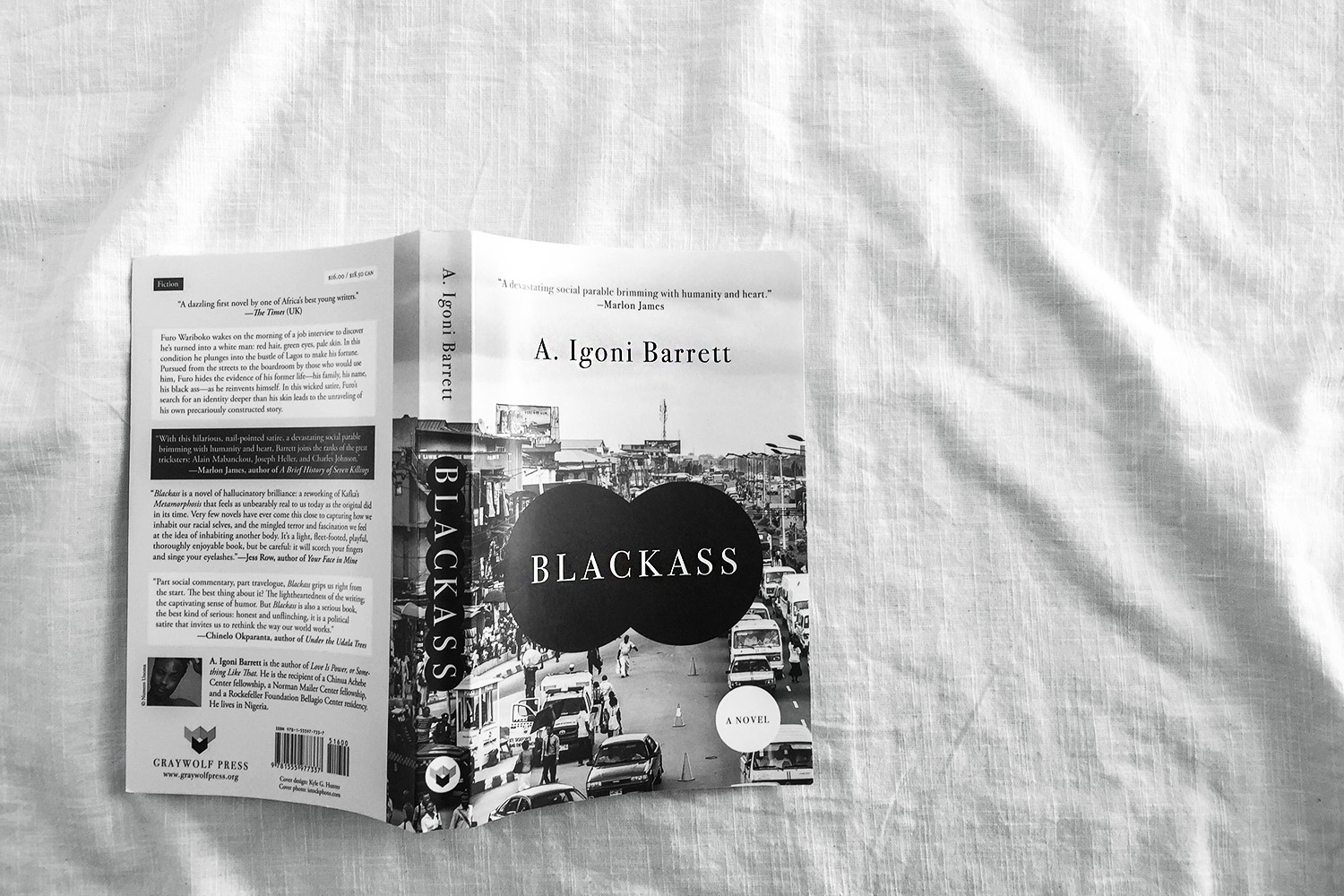
Lagos, Nigeria is my favorite character in Blackass (Graywolf Press, 2016) by A. Igoni Barrett. The book explores the cultural, social and physical landscape of Nigeria’s largest city, rather Africa’s largest city. I found myself referring to maps and looking up foods like egusi soup and eba. Lagos plays host to an ever-rising population, as evident in the city’s impossibly congested roads; traffic feels like a living, breathing character in and of itself. Cars crawl forward as engines rev, horns blare, smoke spews, temperatures rise, and radios roar, a hazy stasis endured by drivers hour after hour, day after day. The wealthy corners of Lagos are Ikoyi, Victoria Island and the Lekki Peninsula, where one is likely to find an oyibo, a white person, which is the bizarre fate of our protagonist.
This is a story of a black man who wakes up “alabaster”, of Furo Wariboko who becomes Frank Whyte. On the morning of his Kafka-like metamorphosis, Furo leaves home for a job interview, never to return, choosing instead to forge a new life as a newly minted oyibo. Blackass reflects a world that is far from colorblind, in fact it is a world obsessed with race. All that Furo experiences – job offers, bureaucracy, women, meals, conversations – centers on his newfound whiteness. Of course, a white man named Furo Wariboko wandering Nigeria is sure to inspire an exaggerated response. But rather than a distortion of how we observe race, the book reads more like a parable of its pervasiveness:
“No one asks to be born, to be black or white or any colour in between, and yet the identity a person is born into becomes the hardest to explain to the world” (111).
The book is light, often funny, while addressing issues of race, class, and Nigeria, even social media: “To make money off selling us to ourselves, that’s the business model of social media” (80). The story is free to explore the far reaches of such issues due to its outlandish setup. I am far too unfamiliar with the works of contemporary African authors, but after the reverie of Blackass, I plan to change that.
Best, Yuri
@yuriroho
This is a story of a black man who wakes up “alabaster”, of Furo Wariboko who becomes Frank Whyte. On the morning of his Kafka-like metamorphosis, Furo leaves home for a job interview, never to return, choosing instead to forge a new life as a newly minted oyibo. Blackass reflects a world that is far from colorblind, in fact it is a world obsessed with race. All that Furo experiences – job offers, bureaucracy, women, meals, conversations – centers on his newfound whiteness. Of course, a white man named Furo Wariboko wandering Nigeria is sure to inspire an exaggerated response. But rather than a distortion of how we observe race, the book reads more like a parable of its pervasiveness:
“No one asks to be born, to be black or white or any colour in between, and yet the identity a person is born into becomes the hardest to explain to the world” (111).
The book is light, often funny, while addressing issues of race, class, and Nigeria, even social media: “To make money off selling us to ourselves, that’s the business model of social media” (80). The story is free to explore the far reaches of such issues due to its outlandish setup. I am far too unfamiliar with the works of contemporary African authors, but after the reverie of Blackass, I plan to change that.
Best, Yuri
@yuriroho


Intriguing! Goes on the list for upcoming month 🙂
With the current political climate in America, it’s hard to imagine addressing race and class lightheartedly. There’s so much anger, but at the same time rightfully so. But I do think that a book like this could help open our minds 🙂 -Audrey | Brunch at Audrey’s